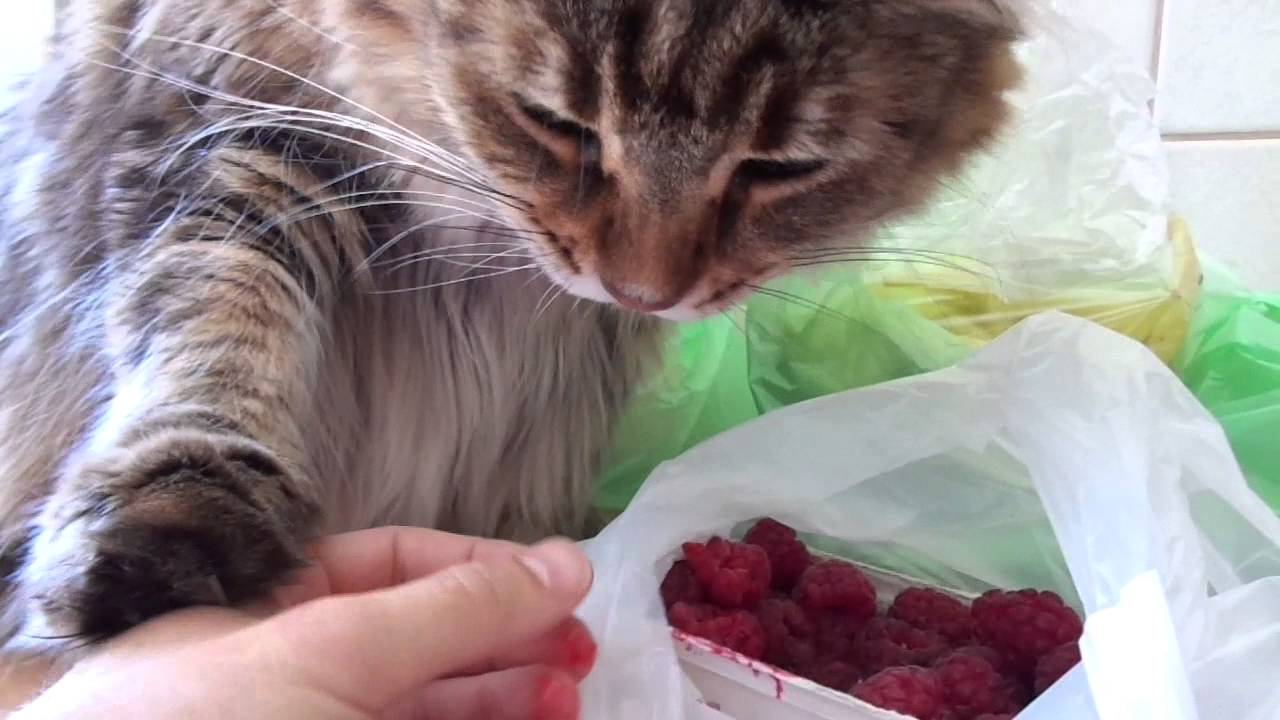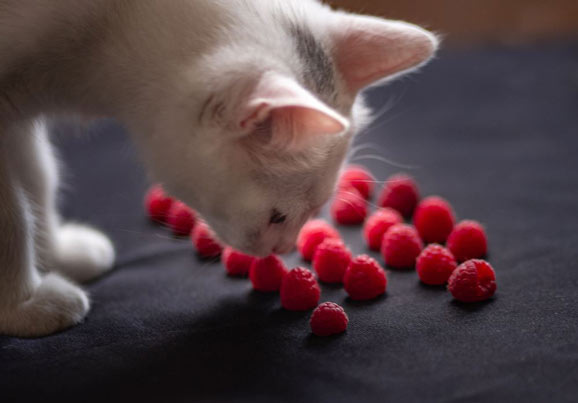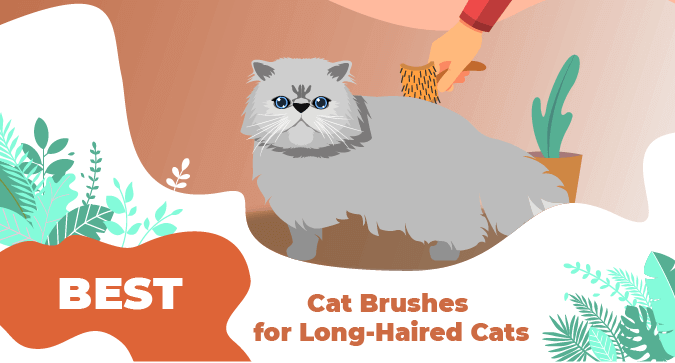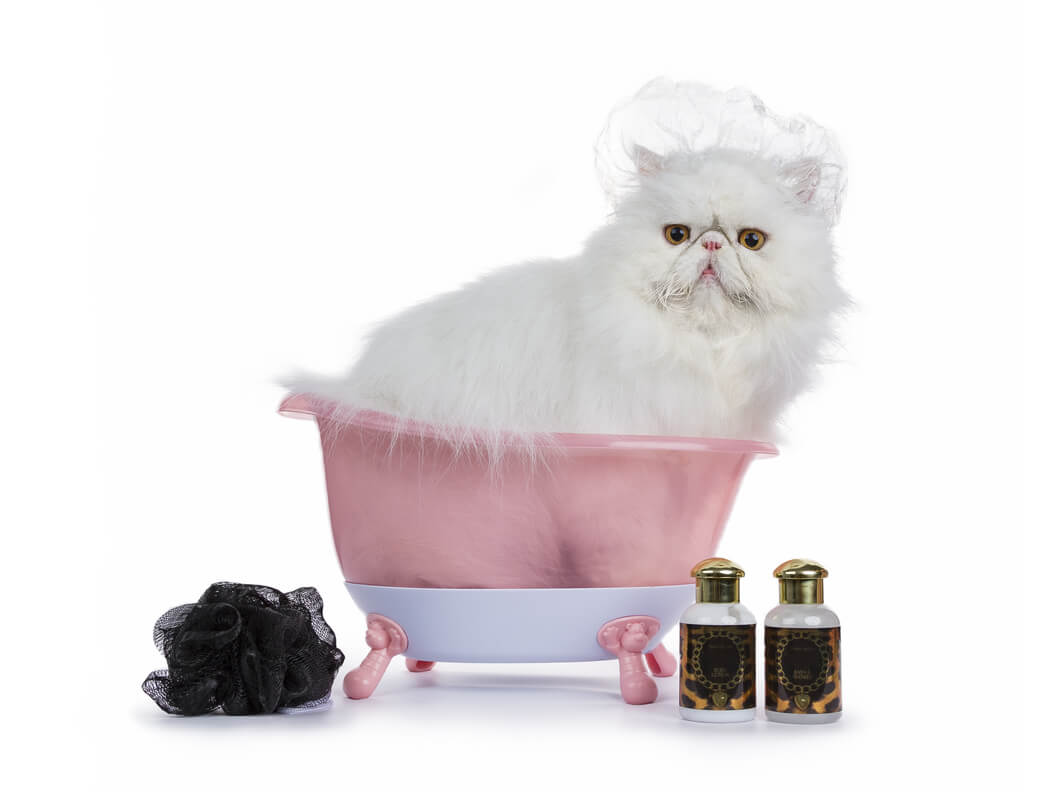Are Raspberries Safe For Your Cat? 6 Things To Know
This page contains affiliate links. We may earn money or products from the companies mentioned in this post through our independently chosen links, which earn us a commission.
Raspberries are small edible fruits of a perennial shrub of the rose family. This sweet juicy fruit comes in several vibrant colors, including red, black, purple, and golden-orange.
Raspberries are commercially cultivated in different parts of the world and are used to make jams, ice cream, pastry fillings, and jellies. For you and me raspberries are nutritious fruits low in sugar and high in calcium, magnesium, potassium, dietary fiber, and vitamin C.
But when it comes to your feline, you may be wondering if it’s okay to share with them some raspberries. Well, below are some of the facts you need to know before you give your cat raspberries:
1. What Do Cats Eat?
Cats are primarily carnivorous and get most of their nutrients from animal protein. Therefore, they derive all their nutritional requirements from a meat diet, unlike humans, who must have a balanced diet containing fruits and vegetables.
However, plants like grass help treat nausea and relieve indigestion in cats, so you should occasionally treat your cat to small amounts of fruits and vegetables.
2. Are Raspberries Safe For Your Cat?
Some fruits, such as cherries and grapes, are toxic to cats. But raspberries aren’t listed as one of the toxic fruits to cats. So, yes, it’s safe to give your feline raspberries.
However, be careful and give your cat a small number of raspberries. Don’t make it a habit or make the fruit part of your cat’s diet. Giving your kitty too many raspberries can lead to an upset stomach, vomiting, or dehydration.
3. Does Your Cat Love Raspberries?

Even though cats can’t perceive the full range of colors like we can, they are often drawn to bright, flashy colors. Raspberries are elegantly red and strong-scented, making them quite appealing to cats.
If you offer your cat a couple of raspberries and she keeps asking for more, this only means that she loves the fruit. This is enough confirmation that you should make raspberries part of her treat.
However, don’t leave any raspberries lying around since your cat may sneak and eat an excessive amount of this fruit which may not be safe for her.
Some felines don’t like raspberries, and if your cat is one of them, don’t force the fruit on her. Rather, consider giving her other beneficial and healthy fruits.
4. In What Form Can My Cat Eat Her Raspberries?
Raspberries exist in different forms, including fresh, frozen, jam, yogurt, and ice cream.
Fresh or frozen raspberries are good for your cat. But don’t give your cat raspberry jam as it contains lots of added sugar and sweeteners. These high sugar levels may destabilize your cat’s sugar levels, making them diabetic.
Similarly, raspberry ice cream contains lots of added sugar and artificial flavors, making it toxic to your cat. In addition, lactose in ice cream and yogurt leads to gastrointestinal complications such as diarrhea, bloating, vomiting, nausea, and abdominal pains. Finally, ice cream, since it’s frozen, may also cause choking to cats.
Don’t add any seasoning such as spices, garlic, or onions to your cat’s raspberries. You shouldn’t even attempt to sprinkle sugar over frozen raspberry because your feline may develop gastrointestinal problems or become overweight and develop diabetes over time
Even though fresh or carefully dried raspberry leaves are harmless to cats, wilted raspberry leaves may cause nausea and vomiting. Also, care should be taken when giving your cat raspberry leaves as they might have plant parasites and residues of pesticides which might cause health problems to your pet.
5. What Are The Health Benefits Of Raspberries?

Raspberries offer several health benefits to your puss, including:
Boosts immunity and slows down your cat’s aging process – Vitamin C in raspberry contains antioxidant and anti-inflammatory properties, which help in boosting your cat’s immunity. The antioxidants also help in slowing down the aging process in your cat. The antioxidants also prevent inflammation and scarring of your cat’s skin that may result in premature aging.
Regulates your cat’s blood sugar levels – Raspberries are sweet fruits that contain healthy sugars. This is an anti-diabetic fruit as it lowers your feline’s insulin levels, helping regulate their blood sugar levels. This is why raspberry is recommended as a treat for diabetic cats.
Boosts Digestion – The soluble and insoluble fiber in raspberry helps boost digestion by promoting the growth of healthy and friendly gut bacteria. The insoluble fiber regulates bowel movements and creates a sense of fullness by monitoring your cat’s food portions, thus preventing obesity. At the same time, the soluble fibers slow down the digestion process by preventing faster absorption of sugary and fatty foods into your cat’s bloodstream.
Boosts Memory – Raspberries contain a flavonoid that helps boost your cat’s memory and mood. A treat of raspberries also helps clear toxic proteins formed around your cat’s brain that would otherwise result in brain dysfunction
6. What Happens When Your Cat Eats Too Many Raspberries?

Raspberries may have lots of health benefits.
Unfortunately, raspberries also contain xylitol in small amounts. Xylitol is a natural alcoholic substance that has become a common sugar substitute. However, Xylitol in large amounts is toxic to cats and dogs.
You should give your feline raspberries in moderate quantities as a treat and not part of their diet. The safe amount of raspberries to give to your feline is one to two raspberries once or twice a week.
Giving your cat more than the recommended quantity of raspberries may result in several health complications, including:
- Diarrhea
- Constipation
- Nausea
- Abdominal pain
- Stomach upset
- Dehydration
- Foul-smelling feces
- Kidney damage
Avoid feeding raspberries to cats with a history of gastrointestinal problems, sensitive stomachs, allergic reactions, and compromised immunity.
In closing, some of the best practices to consider when giving your cat raspberries include:
- Give this fruit in moderate proportions
- Serve your puss thoroughly washed fresh or frozen raspberries. The frozen raspberry shouldn’t be added any sugars or fats
- Serve plain raspberry to your cat. Don’t mix them in ice cream or jam
- Check for adverse or allergic reactions after giving your feline raspberries
- Serve the fruit as an occasional treat even if your cat develops a liking for the fruit
- Discuss with your vet before introducing raspberry as a cat treat
FAQ
Is raspberry harmful to cats?
No, raspberry, when given in the recommended portions, is not harmful to cats. Feeding excess amounts of raspberries to your cat can pose lots of health complications
How many raspberries can a cat eat?
Always ensure your cat doesn’t take too many raspberries. It’s recommended to give your cat one or two raspberries per week.
Can cats have raspberry jam?
No, jam contains lots of sugar and sweeteners, which may increase your cat’s sugar levels.
What berries are bad for cats?
Grapes are toxic to cats and should be avoided.



